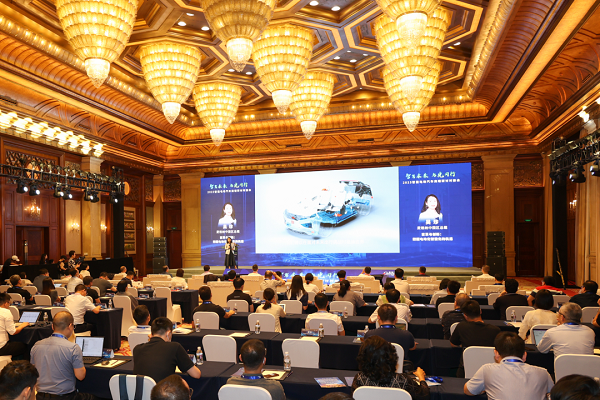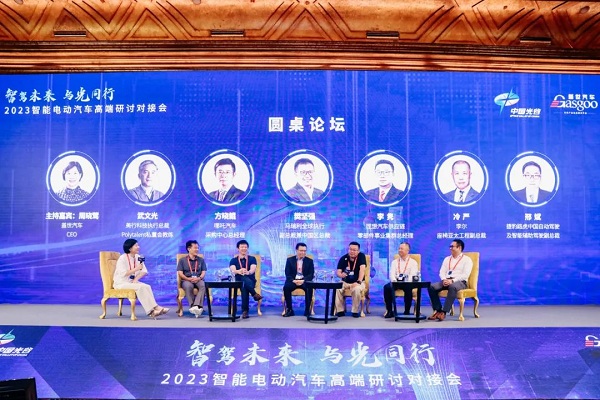Shanghai seminar focuses on smart EVs


A special seminar on intelligent electric vehicles (EVs) opens in Shanghai on July 15, held by Optics Valley of China. [Photo/WeChat account of Optics Valley of China]
The Optics Valley of China, also known as the East Lake High-tech Development Zone, organized a seminar on intelligent electric vehicles (EVs) on July 15. More than 100 entrepreneurs from leading companies such as Lear, Li Auto, and Jaguar Land Rover, as well as senior executives from local enterprises attended the event to discuss matters related to vehicle electrification, intelligentization, and autonomous driving.
The new energy and intelligent connected vehicles, such as emerging smart mobile terminals, are developing rapidly and resonating with optoelectronic technologies.
Currently, OVC has attracted several sci-tech automakers, and they are constructing a 200-kilometer open test road for autonomous driving. In 2022, the valley accounted for around half of Wuhan's new energy vehicle (NEV) sales.
Wu Zhen, president of Magna in China, Gu Jianmin, CTO of Valeo in China, and Li Hai, vice president of Volvo's procurement and logistics department in the Asia Pacific region, exchanged their opinions with other guests at the event.

Entrepreneurs and senior executives are invited to share their insights on the stage at the seminar. [Photo/WeChat account of Optics Valley of China]
In recent years, the penetration rate of new energy vehicles (NEVs) has been steadily increasing. As a result, China's automotive industry has become a new driving force for promoting the economy and maintaining stable growth.
In the future, the Chinese NEV market will offer both opportunities and challenges. Overseas exports of NEVs are expected to be the main driving force for market growth. Coordinated development of the industrial and supply chains will promote win-win cooperation among upstream and downstream enterprises.
The new energy-intelligent EV industry is expected to continue expanding, with significant growth potential by 2025 and 2030.







